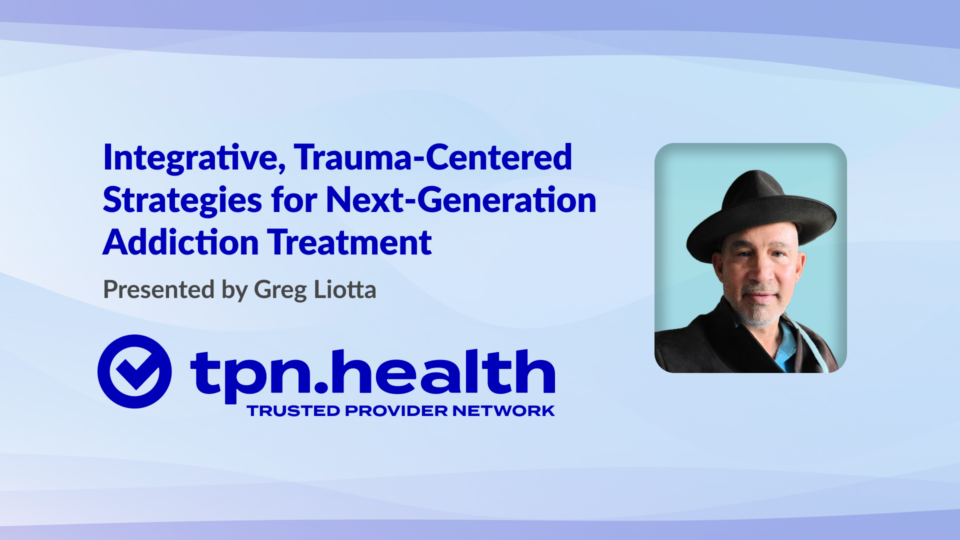Module 2: Revolutionizing Addiction Treatment for the 21st Century

Module 2: Revolutionizing Addiction Treatment for the 21st Century

Presented By
Dates and Times
-
-Live Webinar
Location
-
Live WebinarAccess virtually on TPN.health
In this module, we will review the evolution of our understanding of addiction, beginning in the 19th Century, through the genesis of A.A (Alcoholics Anonymous) up to the present. We’ll examine the pros and cons of abstinence-only models, as well as harm reduction as a trauma-informed modality. We will explore addiction from a whole-person perspective, incorporating contemporary advances in our understanding of neuroscience, physiology, neurocardiology, and trauma.
- • Counselors
- • Substance Use Disorder Professionals
- • Social Workers
- • Licensed Marriage and Family Therapists
The educational goal of this workshop is to increase knowledge about the history and future of addiction treatment.
At the end of this course, participants will be able to:
-
Identify 3 alternative perspectives to the Abstinence-only/ 12-Step Model regarding the nature and treatment of addiction.
-
Describe one example of how language plays a role in treating addiction from a trauma-informed perspective.
-
Provide 2 examples for how one can distinguish harm-reduction from the medical model.
-
Identify 2 pros and 2 cons of the harm-reduction model.
-
Describe one example that describes the nature of neuroplasticity in healing brain dysfunction due to substance use.
-
Fisher, Janina. (2017). Healing the Fragmented Selves of Trauma Survivors. Routledge.
-
Gendlin, E. T. (1981). Focusing. Bantam Dell.
-
Jaffe, A. (2020). The Abstinence Myth: A New Approach for Overcoming Addiction Without Shame, Judgement, or Rules. IGNTD Press.
-
Lewis, M. (2015). The Biology of Desire: Why Addiction is not a Disease. Public Affairs.
-
Maté, G. (2018). In the Realm of Hungry Ghosts: Close encounters with addiction. Toronto Vintage Canada.
-
Maté, G. & Maté, D. (2022) The Myth of Normal. Penguin Books.
-
Porges, S. W. & Winhall, J. (Spring/Summer 2022). The International Body Psychotherapy Journal, Revolutionizing Addiction Treatment with The Felt Sense Polyvagal Model™.
-
Priddy, S. E., Howard, M. O., Hanley, A. W., Riquino, M. R., Friberg-Felsted, K., & Garland, E. L. (2018). Mindfulness meditation in the treatment of substance use disorders and preventing future relapse: neurocognitive mechanisms and clinical implications. Substance abuse and rehabilitation, 9, 103–114. https://doi.org/10.2147/SAR.S145201
-
Snoek, A., & Matthews, S. (2017). Introduction: Testing and Refining Marc Lewis's Critique of the Brain Disease Model of Addiction. Neuroethics, 10(1), 1–6. https://doi.org/10.1007/s12152-017-9310-2
-
Tatarsky, A. (2002). Harm Reduction Psychotherapy. Rowman and Littlefield Publishers.
-
Winhall, J. (2021). Treating Trauma and Addiction with the Felt Sense Polyvagal Model., Routledge.
TPN.health has been approved by NBCC as an Approved Continuing Education Provider, ACEP No. 7267. Programs that do not qualify for NBCC credit are clearly identified. TPN.health is solely responsible for all aspects of the programs.
Course meets the qualifications for hours of continuing education credit for LPCCs as required by the California Board of Behavioral Sciences. TPN.health is approved by the California Association of Marriage and Family Therapists to sponsor continuing education for LPCCs. TPN.health maintains responsibility for this program/course and its content.
Trusted Provider Network, LLC is recognized by the New York State Education Department’s State Board for Mental Health Practitioners as an approved provider of continuing education for licensed mental health counselors. #MHC-0220.
This course has been approved by TPN.health, as a NAADAC Approved Education Provider, for educational credits. NAADAC Provider #198061, TPN.health is responsible for all aspects of the programming. Counselor Skill Group: Legal, Ethical and Professional Development.
TPN.health, #1766, is approved to offer social work continuing education by the Association of Social Work Boards (ASWB) Approved Continuing Education (ACE) program. Organizations, not individual courses, are approved as ACE providers. State and provincial regulatory boards have the final authority to determine whether an individual course may be accepted for continuing education credit. TPN.health maintains responsibility for this course. ACE provider approval period: 03/31/2022 – 03/31/2025. Social workers completing this course receive 1.5 continuing education credits.
Course meets the qualifications for hours of continuing education credit for LCSWs as required by the California Board of Behavioral Sciences. TPN.health is approved by the California Association of Marriage and Family Therapists to sponsor continuing education for LCSWs. TPN.health maintains responsibility for this program/course and its content.
Trusted Provider Network, LLC is recognized by the New York State Education Department’s State Board for Social Work as an approved provider of continuing education for licensed social workers #SW-0654.
Course meets the qualifications for hours of continuing education credit for LCSWs as required by the California Board of Behavioral Sciences. TPN.health is approved by the California Association of Marriage and Family Therapists to sponsor continuing education for LMFTs. TPN.health maintains responsibility for this program/course and its content.
Trusted Provider Network, LLC is recognized by the New York State Education Department’s State Board for Mental Health Practitioners as an approved provider of continuing education for licensed marriage and family therapists #MFT-0097.
-
Waiting Room Opens
-
Workshop Begins
-
Workshop Ends

